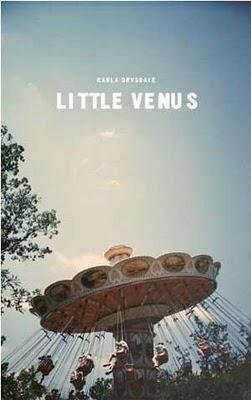Little Venus

Little Venus, a collection of poems by Carla Drysdale, is at once hauntingly beautiful and disturbing. The poems are an autobiographical account of child abuse, sexual abuse, and a dysfunctional family, yet Drysdale manages to strike the difficult balance between beauty and horror. As her first published book of poetry, this is an impressive debut.
Last month I reviewed Sharon Doubiago’s memoir, My Father’s Love: Portrait of the Poet as a Young Girl, which confronted similar topics. Both women use the medium of poetry to work through lingering and confusing feelings of pain, betrayal, and love. While Doubiago fleshes out the details of her abuse, Drysdale weaves a portrait through short verse poems.
While many of the poems talk about her father, there are a few poems that address the refuges in Drysdale’s life. I find “New Years Eve at the Artist’s Colony” particularly moving, as Drysdale recounts the solidarity a musician creates:
He played for us—the dreamers, creators, eccentrics, the driven, the insecure, the arrogant, the labeled and unlabeled, the disowned and owned again.
I was drawn to this poem because it establishes how the experience of music, like poetry, can bring together those alienated by society. It also offers an opportunity for love and for the body to be positive. While many of the poems about her father emphasize the imposing and frightening body, in “New Years Eve” the body becomes a sensual vehicle for the music. The body is not always violent.
The truth is that these are difficult and challenging poems, reminiscent of such established poets as Lucille Clifton, Janice Mirikitani, and Doubiago. I cannot say that I enjoy these poems, as they make me uncomfortable and sad. But I would not read Little Venus for enjoyment. Rather, I would read it to recognize Drysdale’s honesty and poetic voice. These are poems like open wounds, seeking to heal and be healed.
Review by Claire Burrows